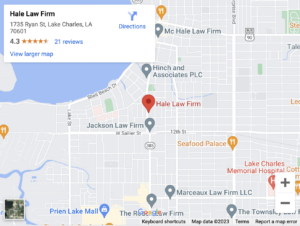
A concussion is the most mild form of traumatic brain injury. However, the term “mild” is potentially misleading, as concussions can do long-term harm to cognitive function. When concussion symptoms linger and worsen, they can impact every area of an individual’s life.
When you experience lingering concussion symptoms, you might find it difficult or even impossible to hold a job, drive a car, and perform other necessary daily tasks. A concussion should be treated as a serious brain injury. And when your symptoms don’t improve or you incur medical expenses for treatment, you may need to take legal action and seek compensation for the damage.
What Is a Concussion?
A concussion is a traumatic brain injury (TBI) that happens due to a blow to the head. Head trauma can easily harm the brain, often having a lasting impact on cognitive function.
There are three main types of traumatic brain injuries:
- Mild TBI (concussion)
- Moderate TBI
- Severe TBI
Typically, a brain injury is categorized based on how long an individual loses consciousness. A concussion is diagnosed when an individual suffers trauma to the head and either doesn’t lose consciousness at all or loses consciousness for fewer than 30 minutes.
What Types of Concussions Can Victims Suffer?
Concussions vary widely in terms of the immediate symptoms and long-term effects. Because of this potential for variety, concussions are categorized by severity. In particular, medical professionals distinguish three different levels of concussion.
Mild Concussion
A mild concussion, as the name implies, involves an injury that meets the diagnostic criteria for a concussion but is accompanied by the most mild symptoms. With a mild concussion, there is no loss of consciousness, and symptoms last no longer than 15 minutes.
An individual who has experienced a mild concussion may feel momentarily dazed, confused, or disorientated. However, these symptoms quickly fade.
Moderate Concussion
A concussion is classified as moderate if there is no loss of consciousness and if symptoms last longer than 15 minutes. Common signs of a moderate concussion include head pain, confusion, forgetfulness, and disorientation.
Moderate concussion symptoms can advance to those of a severe concussion. The likelihood of such a progression increases if the injured person immediately engages in activities that place further stress on the brain.
Severe Concussion
A severe concussion involves a loss of consciousness for fewer than 30 minutes. After the 30-minute mark, the injury is regarded as a moderate brain injury instead of a concussion.
Severe concussion brings the potential for severe symptoms and long-term effects, particularly if medical directions are not followed. Severe concussion symptoms are typically impossible to ignore and significantly interfere with a person’s ability to perform regular tasks.
What Causes a Concussion?
Concussions are an injury caused by trauma to the head. They often result from sports accidents, such as when a ball or some other piece of equipment makes contact with a player’s head.
Concussions are also frequently caused by car accidents. When one vehicle crashes into another, the head can impact the headrest, window, or windshield.
No-Impact Concussions
It’s a common misconception that a person must sustain a blow to the head to suffer a concussion. In fact, an individual can experience a concussion even if the head does not make contact with an external object.
In certain situations, a person experiences a sudden jolt that causes the brain to collide with the inside of the skull. That trauma can result in a concussion.
No-impact concussions often occur in situations like rear-end car accidents. A person’s top half may be jolted forward, causing the brain to crash into the skull, while the rest of their body remains held in place by their seat belt.
As a result, the injured person often thinks they cannot have sustained a concussion since they didn’t hit their head. Knowing that a concussion is a possibility, even without a blow to the head, can help ensure that medical care is promptly received.
What Are the Signs of a Concussion?
The signs of a concussion can vary widely. Some symptoms, like a dazed feeling, are commonly experienced in any type of concussion. More severe symptoms are usually only seen after a severe concussion.
Some of the most common signs of a concussion include the following:
- Head pain
- Dizziness
- Disorientation
- Confusion
- Forgetfulness
- Ringing in ears
- Tiredness
You should always seek medical attention after a concussion, even a mild one. However, some concussion symptoms are more concerning than others.
Concussion signs that merit emergency medical attention include the following:
- Nausea
- Vomiting
- Slurred speech
- Delayed response to questions
- Vision or hearing issues
- Amnesia
- Weakness or numbness
- Emotional or behavioral changes
- Worsening symptoms
- Head pain that increases in severity
Signs like these indicate a severe concussion or even potential complications like brain bleeding.
What Is the Long-Term Impact of a Concussion?
The expected outcome for most concussions is a full recovery. That said, it is most common for concussions to be mild in severity.
Moderate and severe concussions can lead to a lingering or permanent impact on cognitive function. This is a particularly high risk when medical attention is not sought immediately and when a doctor’s instructions for recovery are not closely followed.
Cognitive Function
The brain is a sensitive and complex organ. Severe concussions bring the highest risk of having a long-term impact on brain function.
Areas most likely to be significantly impacted by a severe concussion include the following:
- Memory/recall
- Focus/concentration
- Thinking skills
- Problem-solving ability
- Coordination
Lingering concussion symptoms can seriously impact an individual’s ability to resume work, drive a car, and manage their responsibilities.
Finances
Long-lasting concussion symptoms can lead to ongoing medical bills as you seek help for severe headaches and cognitive issues. When these lingering symptoms impact your ability to drive or hold a job, you may begin to lose wages and benefits too. This can seriously impact your and your family members’ quality of life.
How Can You Get Compensation for a Concussion Caused By Another Party’s Negligence?
Concussion compensation can provide relief for items like medical bills, lost wages, and emotional anguish. If you are able to prove that another person’s negligent actions caused your concussion, a personal injury lawyer can help you recover compensation.
If you’ve experienced a concussion, contact Hale Injury Lawyers, to speak with a personal injury lawyer about recovering compensation. Contact us today for a free consultation at (337) 888-4253

